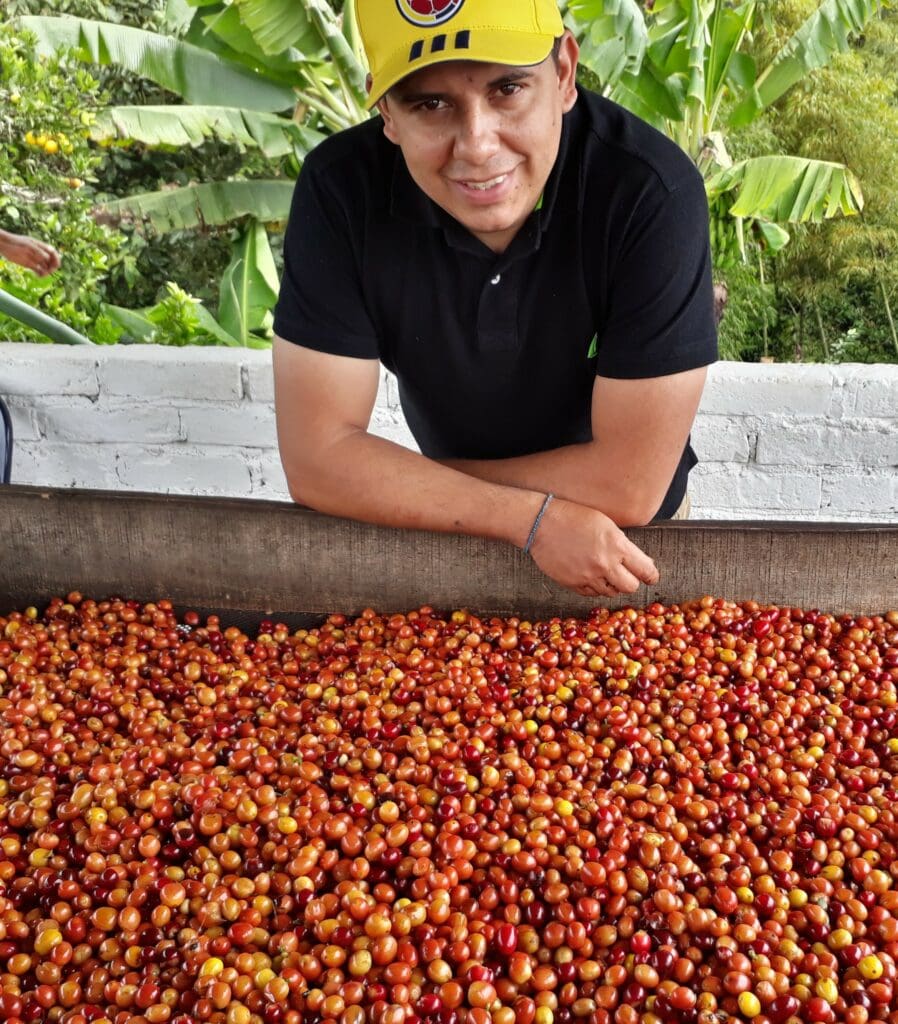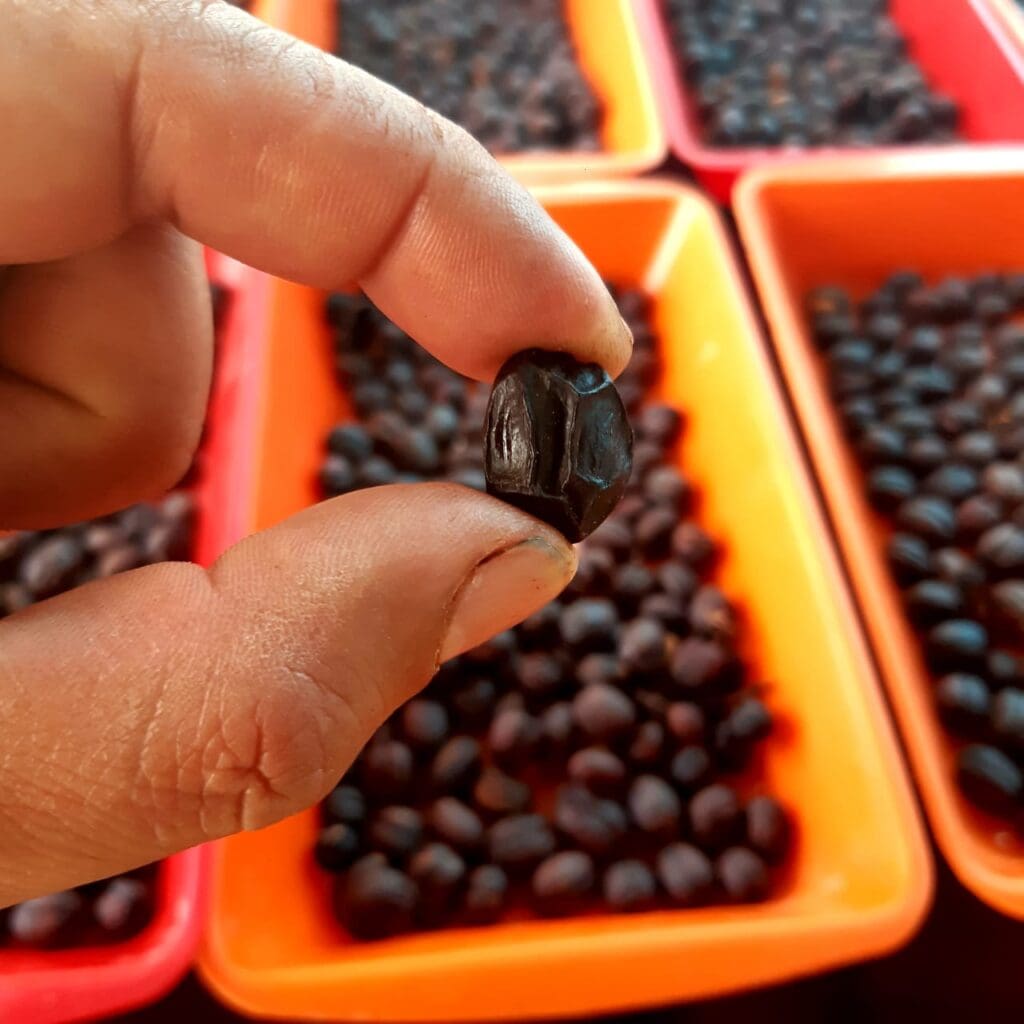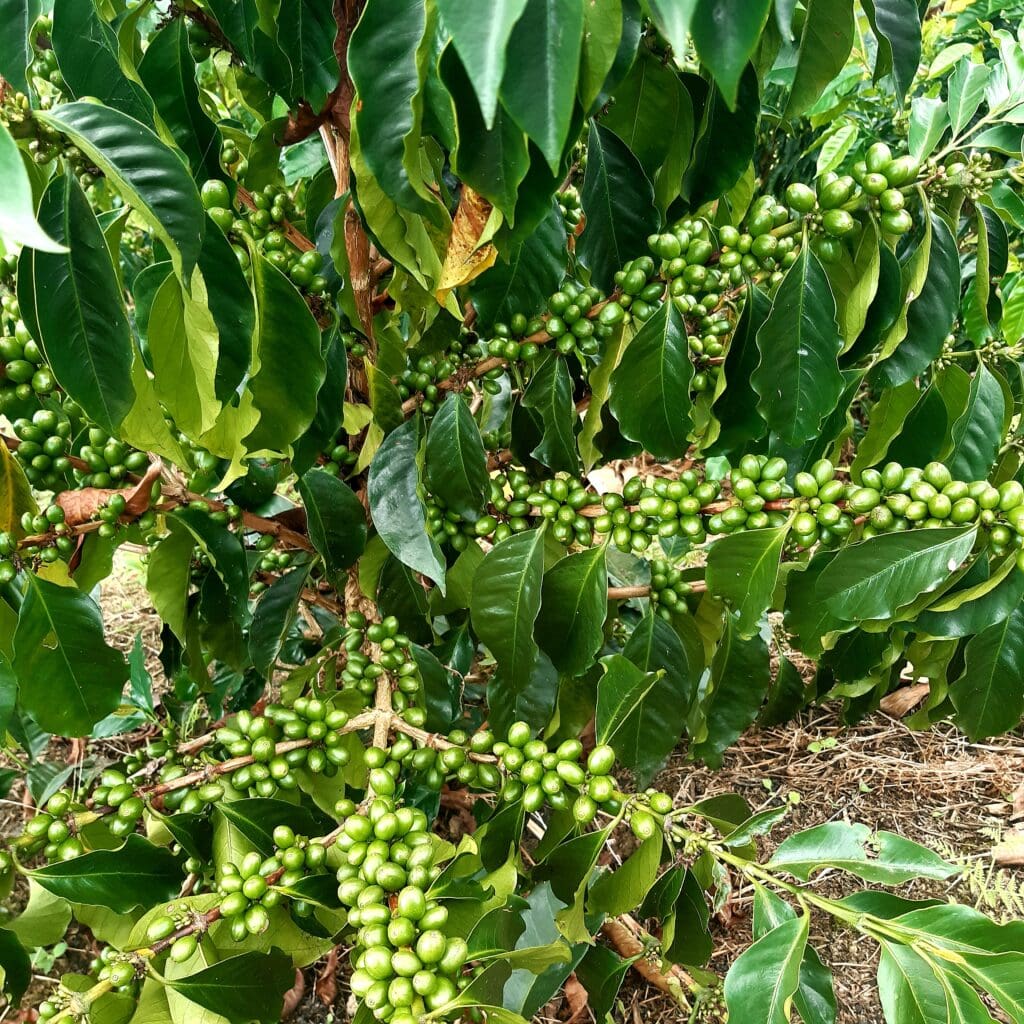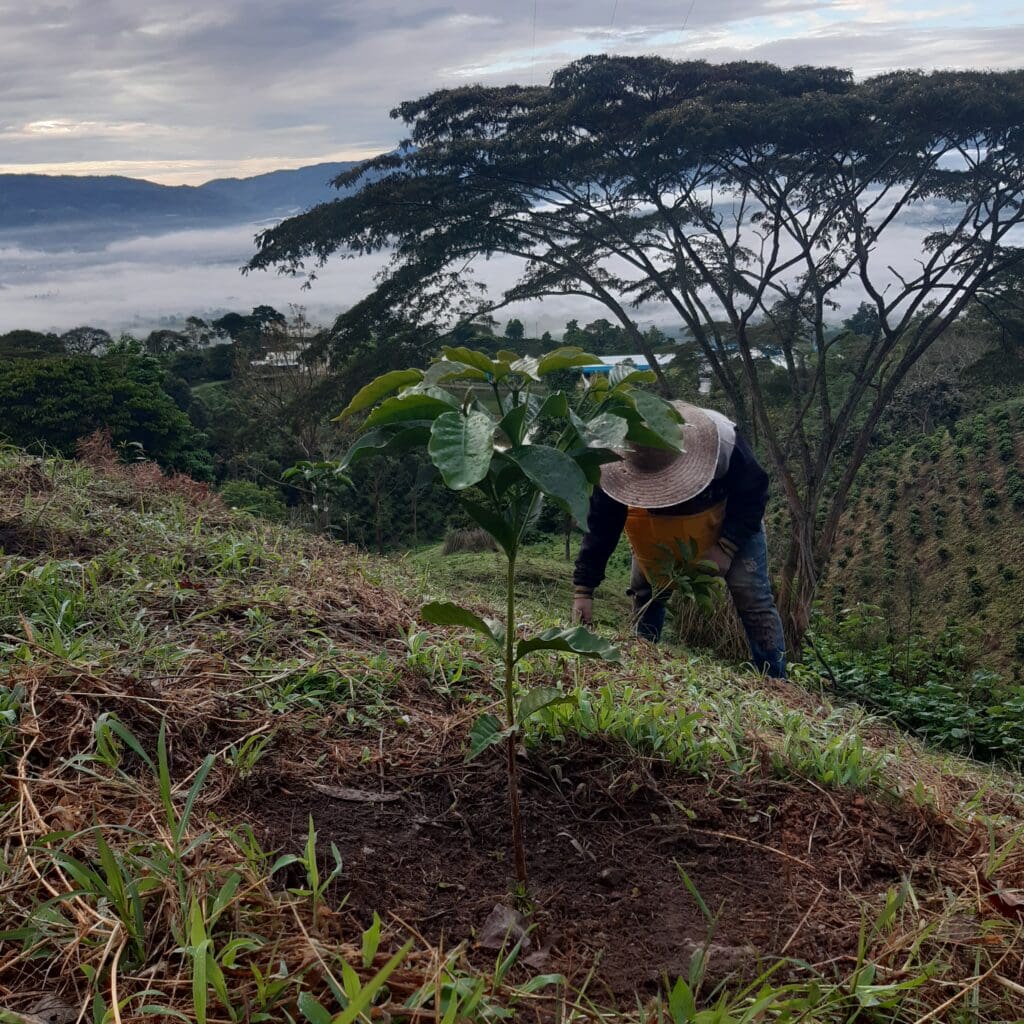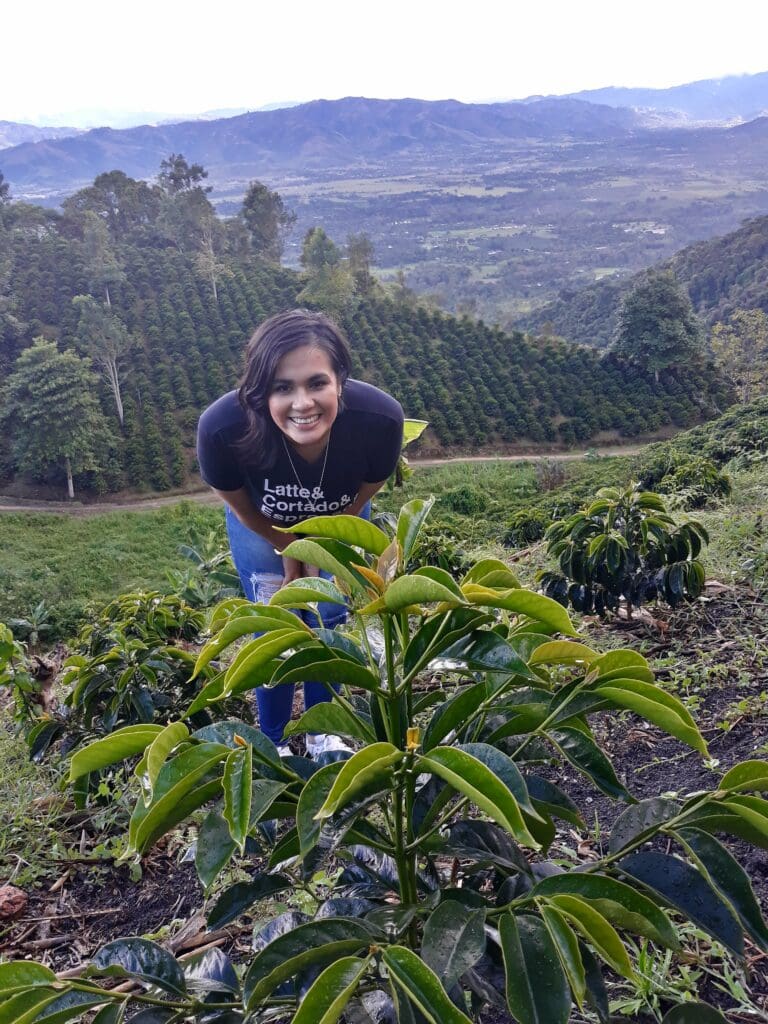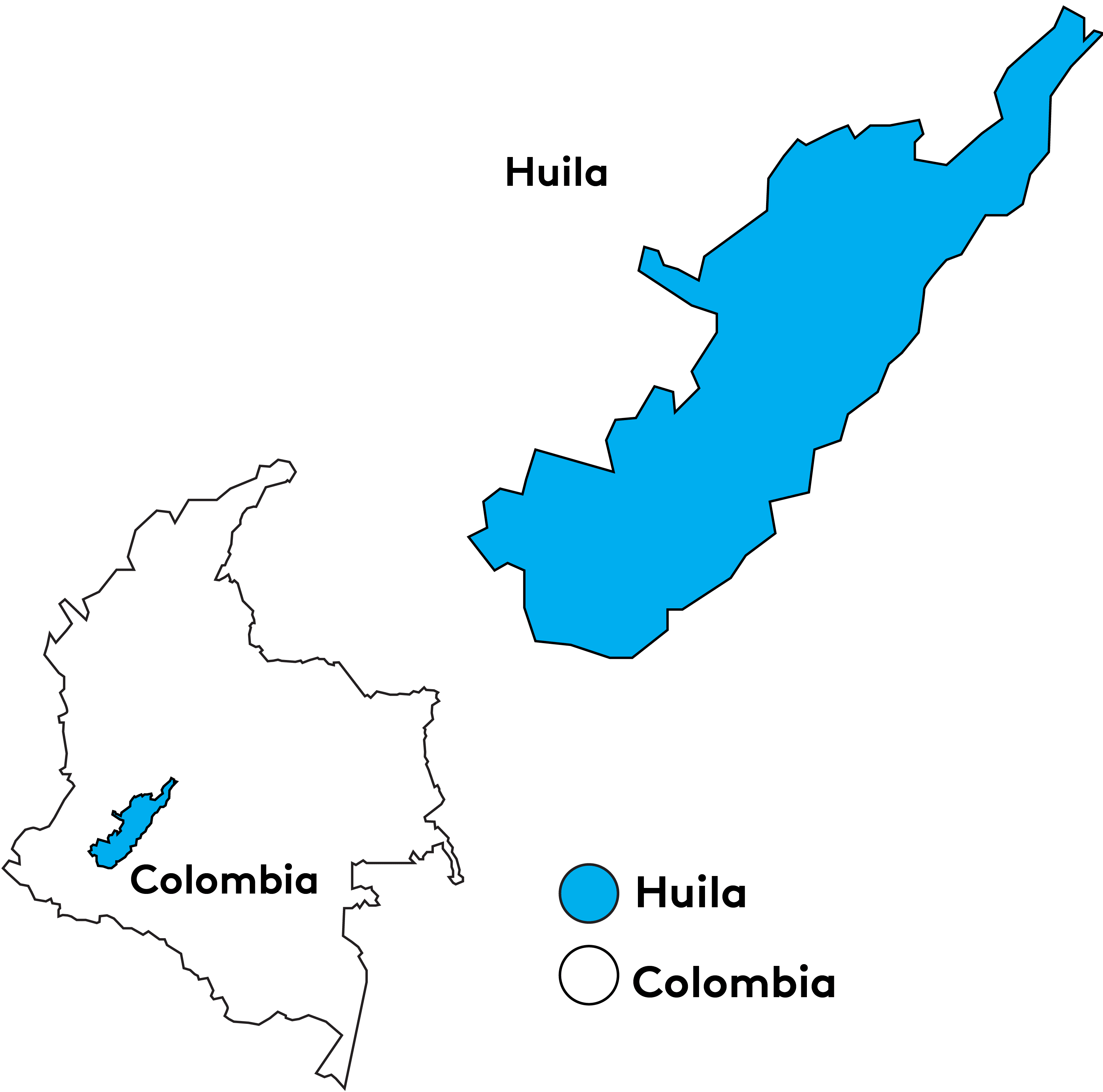Located in the town of Pitalito in Huila, Colombia, El Mirador is a 32-hectare farm with 30 hectares of coffee. The farm includes a broad collection of varieties like Catiope, Mokka, Tabi, and Geisha, as well as three different Bourbon strains including Orange, Striped, and Pink Bourbon. Caturra is a core variety for the farm as well, making it a staple for volume lots.
Elkin Guzman, the owner of El Mirador, has been surrounded by coffee since he was born. His family has always been involved in coffee cultivation, trading, or retail. Collectively, his family has celebrated over 70 years in coffee now, with 12 years of research devoted to post-harvest processing techniques. All of this research and experience has brought Elkin to utilize multiple processing techniques depending on the individual lot of coffee, including Coffee Maceration, Lactic and Acetic Natural processes, and Natural Hydro Honey.
Harvest and post-harvest procedures are highly standardized for consistency and quality. First, the sugar content of the coffee cherries is measured in degrees Brix, followed by density and volumetric separation. Finally, the decision is made on which processing method is best suited to bring each lot to its fullest potential. The processing methods used by Elkin embody his pioneering spirit, combining different approaches to fermentation and drying techniques to complement each coffee’s inherent characteristics. In the case of this lot of Tabi coffee, the team at El Mirador chose Natural Hydro Honey processing. Tabi is a coffee cultivar that was released by Cenicafé in 2002. It was developed by crossing Bourbon, Typica, and Timor coffees, and offers the positive cup characteristics of Bourbon and Typica while having greater resistance to la roya coffee leaf rust.
Natural Hydro Honey process begins when first the coffee is sorted by floating the cherries in water to remove defects, which is followed by hand sorting to remove dark and overripe fruit. Cherries are then dried and fermented whole for 8 days, similar to Natural processing. The dried cherries are then placed in water tanks for 36 hours. During this time the cherries are rehydrated, and sugars are broken down by the water. The coffee is then pulped and moved to raised beds. Here, the coffee will dry 20–25 days as Honey process coffee, before finally being milled and prepped for storage and export.
